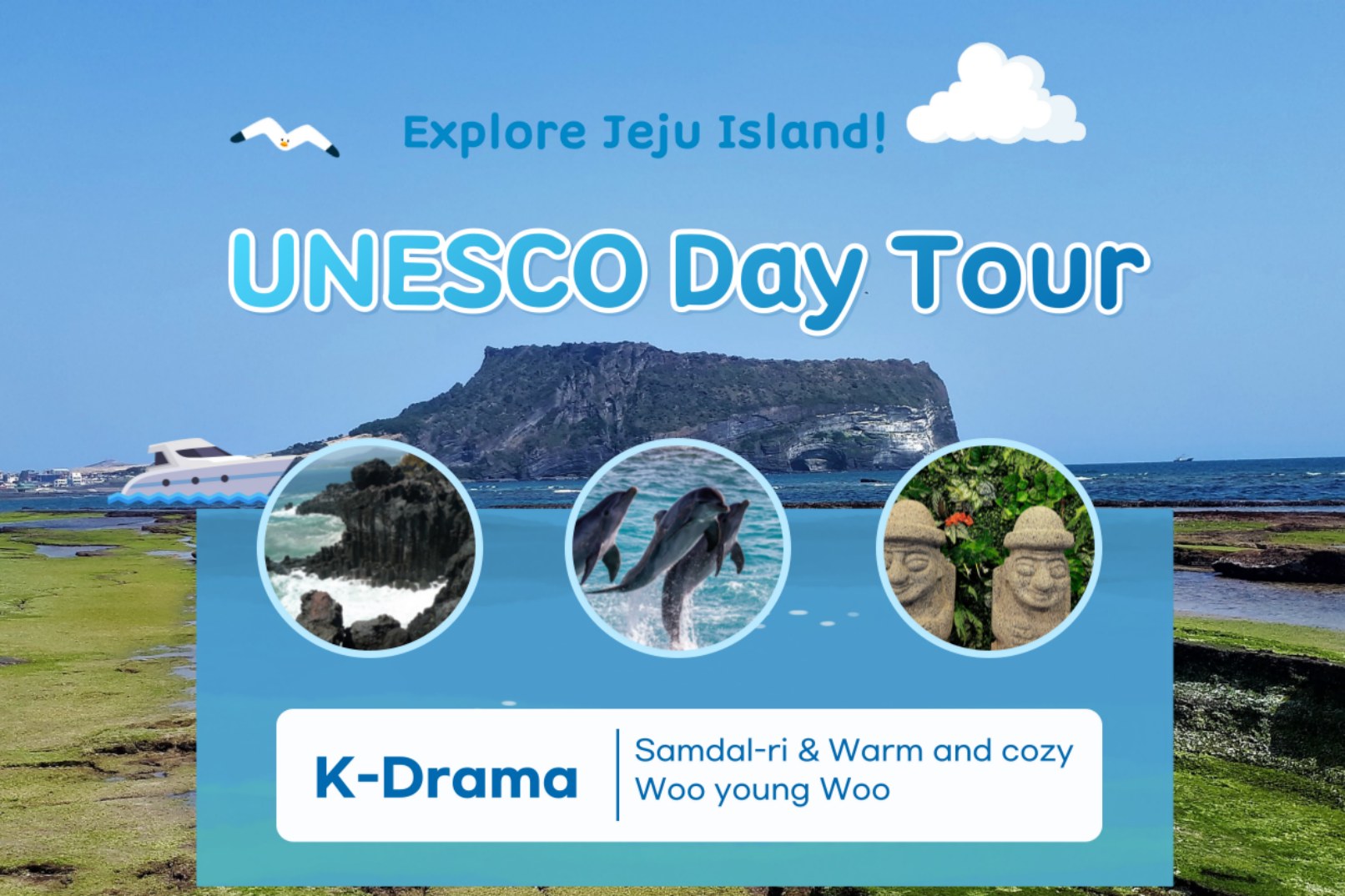
Full-Day Jeju Island UNESCO Tour for Cruise Layover Guests
This tour is specially designed for travelers arriving in Jeju by cruise ship. Our guides will be waiting for you at the port before your cruise ship arrives.
Although the tour time is set at 8:00 AM on the product page, you can book this tour regardless of your arrival time. We arrange pickup based on your cruise ship's schedule and ensure that you return to the port well before departure.
2 two Itinerary Tour itinerary for departures from Jeju Port: Seongsan Ilchulbong, Seopjikoji, Seongeup Folk Village, and Dongmun Market.
Tour itinerary for departures from Seogwipo Gangjeong Port: Hallasan Mountain, Cheonjiyeon Waterfall, Jusangjeolli Cliffs, and Olle Market.
Depending on how long your cruise stays in Jeju, the tour may be shorter or longer, and more attractions may be added.
Please check with your cruise line to confirm the exact port where your ship will dock. With our tour, make the most of your time in Jeju and explore the island’s top UNESCO spots.
Options
[Join -in] Layover Jeju Tour
What's included in Full-Day Jeju Island UNESCO Tour for Cruise Layover Guests
(Subject to Option Inclusions)Itinerary
Seongsan Ilchulbong
[Jeju port Guests only] Seongsan Ilchulbong is Jeju's top UNESCO natural heritage site. Hike through its stunning landscapes and explore the natural beauty of Jeju. Enjoy some of the island's most spectacular scenery at Seongsan Ilchulbong.
Seopjikoji
[Jeju port Guests only]Seopjikoji, a scenic coastal area on the eastern shore of Jeju Island, offers stunning views with Seongsan Ilchulbong as its backdrop. Visitors can experience quintessential Jeju beauty with Shinyang Beach's white sands, yellow canola flower fields on hilltop plains, grazing Jeju ponies, rugged coastal cliffs, and the legendary Seonbawi Rock. Unlike other coasts, Seopjikoji features red volcanic ash called "songi," and its unique rock formations, revealed and hidden by the tides, resemble a natural stone exhibition. The name "Seopji" signifies a land producing many talented scholars, while "Koji" is a Jeju dialect term for a land protruding into the sea. Knowing its historical and scientific background enriches the experience of Seopjikoji.
Seongeup Folk Village
[Jeju port Guests only]Within the ancient walls of Jeongui-hyeon, there are around 110 traditional houses, with more outside the walls. The village boasts a rich cultural heritage, including the Jeongui Hyanggyo Confucian school and Ilgwanheon pavilion, both designated as tangible cultural properties. A zelkova tree and three hackberry trees near Ilgwanheon are natural monuments. Visitors can also experience Jeju’s intangible cultural heritage, such as Omegi liquor, Gosori liquor, and traditional Jeju folk songs. Nationally designated cultural properties include the Cho Il-hoon, Ko Pyung-o, and Lee Young-sook houses, showcasing urban living styles from the Joseon era. Staying in traditional guesthouses, visitors can immerse themselves in the cultural heritage and daily life of the village residents.
Inclusions
- Admission Fees
- The pickup & drop times are scheduled to match the Cruise ship arrival&departure times(06:00~22:00)
- Professional Guide
- Cruise Terminal Pickup - Tour - Drop
- Lunch Costs
- Personal Expenses , Tips, Personal travel insurance
- If the wrong port is selected, an additional fee of 15,000 KRW per person will be charged.
- If pickup or drop-off is before 8:00 AM or after 8:00 PM, an additional fee will apply.
- Public transportation options are available nearby
- Travelers should have at least a moderate level of physical fitness
- If you contact us via WhatsApp, we can respond quickly and accurately.
- Our tour guide will be waiting for you with a “LOVE KOREA” sign in front of the terminal gate after you disembark from the cruise.
- The earlier you disembark, the more time you can enjoy at the attractions.
Meet
Pickup and Dropoff
You will make your own way to the meeting points
Meeting / End Points
- Jeju Port Cruise Terminal. There are two ports in Jeju, and they are far apart. Please confirm the correct port address with your cruise. After booking, we’ll message you. Our guide will wait at the terminal exit gate with a “LOVE KOREA” sign, timed with your cruise arrival.






